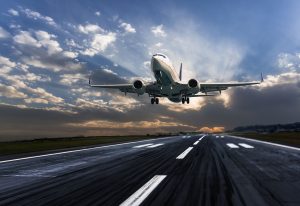The Boeing 787 flight from Heathrow to New York today marks a groundbreaking achievement in the aviation industry's pursuit of sustainable practices. This long-haul commercial journey, utilizing 100% sustainable aviation fuel (SAF) made primarily from used cooking oil and plant-based products, signifies a departure from previous regulatory restrictions that limited airlines to 50% eco-fuel usage.

Virgin Atlantic, a key player in this initiative, acknowledges the flight's significance as a tangible step towards reducing the carbon footprint of air travel. Although not a zero-emission endeavor, the test flight demonstrates the industry's potential to make substantial advancements in environmental responsibility.
The use of SAF, which doesn't necessitate specialised engines or aircraft modifications, is viewed as a crucial strategy to achieve a 70% reduction in net emissions compared to traditional fossil fuels. However, challenges persist, particularly concerning the cost of SAF—currently three to five times higher than regular jet fuel. The fuel blend used in the flight, predominantly composed of hydro-processed esters and fatty acids (HEFA) derived from used cooking oils, faces scrutiny from environmental groups.

Concerns were raised about the sustainability of the fuel used in the flight, indicating the need for careful consideration of the environmental impact of SAF sources. Additionally, calls for increased government support, incentives, and scaled-up production underscore the industry's dependence on external factors for achieving ambitious SAF targets—such as reaching 10% SAF usage by 2030 and ultimately achieving "Jet Zero" by 2050.
A recent Royal Society report emphasized the magnitude of the challenge, noting that fulfilling these targets would require a significant portion of UK agricultural land. Professor Graham Hutchings of Cardiff University, who chaired the report, stressed the importance of a clear understanding of the strengths, limitations, and challenges associated with the rapid scaling up of new technologies in the aviation sector.
In essence, while the Virgin Atlantic test flight symbolises progress in sustainable aviation, it also highlights the intricate challenges and considerations integral to the industry's broader goal of substantially reducing carbon emissions.